Kyn here, writing to you from my home base in Toronto, where I’ve been reluctantly settling in after returning from a two-and-a-half-month escape to sunny Guatemala. (Guatemala honestly felt like a jailbreak, considering the winter we just had.)
I was immersed in the daily hullabaloo of ‘touristing’ in a (new) foreign country and didn’t have much of an opportunity to write while there.
So here I am now, ready to bring you up to speed with what’s happened. But be warned: this is not merely a travel log of my experiences.
In fact, it’s much more.
Guatemala really did feel like the right choice after several stagnant, sunless months back home. It was an assortment of emotions and endeavours, flavoured with gorgeous sights, and it was the overall relaxing haven of warmth and comfort I sought.
But while I want to tell you that each day was perfect and undisturbed, it’s more truthful to admit that each day also unravelled a series of untouched inquiries into the meaning of my existence and my life’s purpose.
Not always a cheerful experience, to say the least.
It’s a bit like digging through dirt to uncover fresh, fertile soil, and occasionally dredging up skeletal remains in the process. Prying into the meaning of our life will inevitably turn up the macabre.
So there I was, wrapped up in the splendour of an ancient colonial city (Antigua), united with the peace and calm nature had to offer (Atitlan), while simultaneously contemplating things of greater depth than anything I could set my eyes on and marvel at.
Antigua cued lengthy meditations into the subject of having an aging body, while Atitlan dropped hints of a timeless tranquillity that begged me to hold its hand and sit with it for even longer.
I know it’s natural to feel the fear of obsolescence creeping in as we age.
I know it’s natural to wonder, “Well, what now? What’s left?”
I also know that in the later phase of life, either way, it’s natural for each of us to turn our heads toward our grand finale, with the realization that the last act in the play of our life is imminent, and there’s nothing we can do to prevent it from happening. Death awaits. For some of us, patiently. For others, not so much.
Each day, I found Easter egg reminders—rather, they found me—of the truth we all forcefully push to the fringes of our awareness, but that will one day be positioned ‘dead’ center, whether we like it or not — and where it frankly should have been, all along.
But that’s exactly what this pilgrimage was helping me cultivate: an abiding awareness of my death—and a commitment to live the rest of my life in honour of that awareness.
Thinking about death is pivotal. So pivotal that I sometimes wish I could go back in time and aggressively shake my 20-something-year-old self into the same level of death sobriety that I’m in these days. But I realize she’d be too doped up on the essence of her youth to listen or care.
Yes—death sobriety—let’s talk about that.
I describe it as the volitional detoxification from the illusion that we will remain here in this state forever; a sobering up to the ultimate, confounding realization: all things end, and one day, we will too.
We all know this truth, but do we assimilate it into our psyche? And how do we allow this truth to steer our lives in enriching ways that are conducive to our well-being, guiding us towards sanctity instead of insanity?
For me, letting that truth seep in—really letting it transform me—started quietly.
I think it began about two years ago, when an obsession with eclectic artifacts started to take root—old photos and films, unearthed relics, sequestered, decrepit estates. I didn’t know it at the time, but this strange pull toward the forgotten, the buried, the long-gone was the first subtle pivot toward the cognition of my own death.
That curiosity has since evolved into something more candid and mindful—a reflection on the inevitability of my eventual death. And surprisingly, instead of paralyzing me, it’s done the opposite.
It propels me forward into action. Not mindless, frenzied action, but action imbued with pure gratitude and alertness. I honour this beautiful, brief incarnation that now unfolds—even with all its hardships—knowing that it will one day run out.
Being lucid about my death compels me to live my life in reverse. As I hold the inescapable reality of my death in my conscious mind and play my life backwards from there, I find myself living more fully in this moment, really marinating in it and letting it soften me.
I think about all the things I would regret, lying there on my deathbed, hopefully many years from now—all the things I’d be wishing to have done, pining to have said.
It’s like having a conversation with my future self—the deathbed version.
I ask her, “What are your hangups?”
“What do you wish you’d done more of? Less of?”
I take notes. And then I try to act on them now, while I still have the mental clarity and mobility to do so.
Maybe that’s what really pushed me to go to Guatemala—not just the unforgiving Canadian winter, but the stinging urgency to say yes to life, even with financial uncertainty. Even with the hassle of travelling these days—by which I mean the bulky packages of pharmaceuticals I lug around like reluctant souvenirs.
My death obsession, as I have recently come to learn, is more than a meditation on my mortality and an oath to live well. Every day, my mind sways magnetically towards the notion of death because I know it’s my life's work.
Lately, I’ve stopped resisting that pull. Instead of sidestepping death in conversation or thought, I’ve chosen to centre it—to make space for it, study it, and serve through it. That’s what led me to enroll in Death Doula training.
This next phase of my life is devoted to opening up the conversation around death and dying, and fulfilling my wish to support others through the most profound transition they will ever face.
Why Death Sobriety is Necessary
Death sobriety is looking at our life and seeing it for what it is, rather than what we intend for it to be, and being okay with it.
It’s willingly sharing a table with all our uncomfortable emotions and thoughts—a tea party with our worst contenders—to finally listen to what they were trying to tell us all along. Shame, grief, regret, self-doubt—they all show up, thorny but essential. Hint: it’s all good stuff that helps us grow, uncomfortable as it may seem.
Death sobriety is being ok with the things that never happened, and all the things that did.
It’s being honest with yourself — really honest — about the things you still crudely long for but are ashamed to admit; the habits that still have you by the toe, when you think you’ve kicked them off you.
The Unexpected Rewards of Death Sobriety
Reward #1 of death sobriety is the ultimate alignment of thought, word, and action. We can no longer ignore the awkward sway of a life out of sync—when our thoughts pull one way, our words go another, and our actions are in a completely different zip code. It compels us to get honest about how we want to live, who we want to spend our time with, and reveals the true motivations behind our choices.
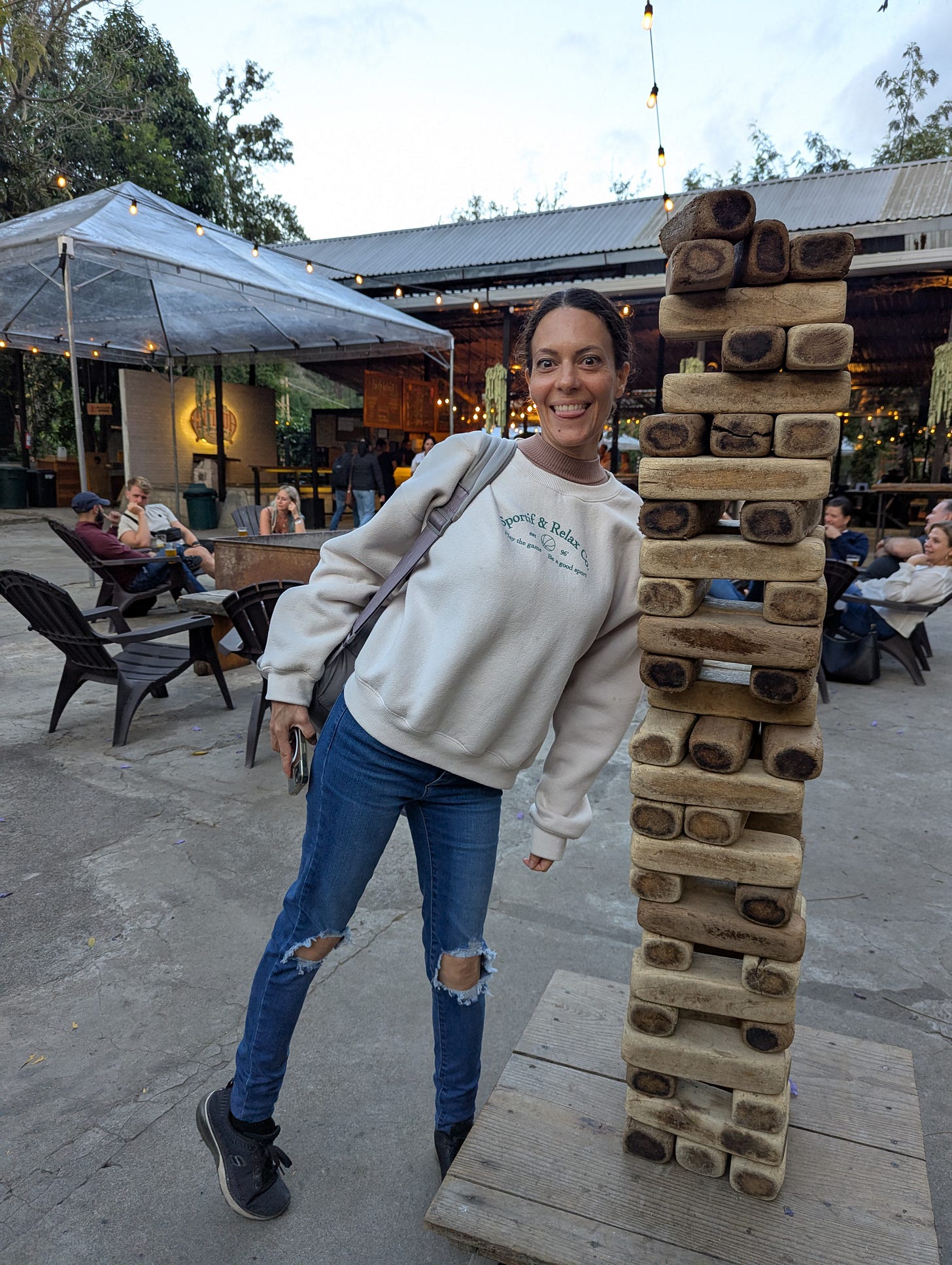
Reward #2 of death sobriety is that it calls bullshit on our self-sabotaging patterns—even the ones we’ve worn like second skin. It tears through the myths we’ve built about who we are, making room for new, truer instincts to take root. Instincts that sync with nature. Instincts that serve the version of us we’ve been too afraid—or too distracted—to become.
Reward #3 of death sobriety is its power to cut through the noise. It pulls us out of our favourite distractions—the endless scrolls, the curated feeds, the digital haze—and anchors us back to what’s real. To breath. To presence. To intention. We stop sleepwalking through our days and start living with unprecedented fullness.
Reward #4 of death sobriety is that it pulls us closer to the people we love.
It prompts us to heal what’s fractured—to mend broken relationships, release grudges, ask for forgiveness, or offer it to those who seek it from us.
When we’re staring death in the face, facades lose their grip. We see where we’ve been hiding—especially with those we care about—and we begin choosing truth, even when it’s vulnerable, over roles that keep us distant from one another.
You might be wondering: Isn’t it too early to start thinking about (my) death?
In response, I’ll leave you with a sentiment beautifully captured by Death Doula and author Alua Arthur—something along the lines of:
“It’s not too early to start thinking about something that’s guaranteed to happen one day, but could arrive as suddenly as tomorrow.”
Death sobriety doesn’t dampen life and weigh it down—it enriches and brings levity to it. It strips away the fog, the self-deception, the performances we get caught up in. It aligns us, softens us, wakes us up. It’s not morbid—it’s liberating. And if it brings us just one step closer to the life we were meant to live, then it’s a conversation worth having. Again and again.






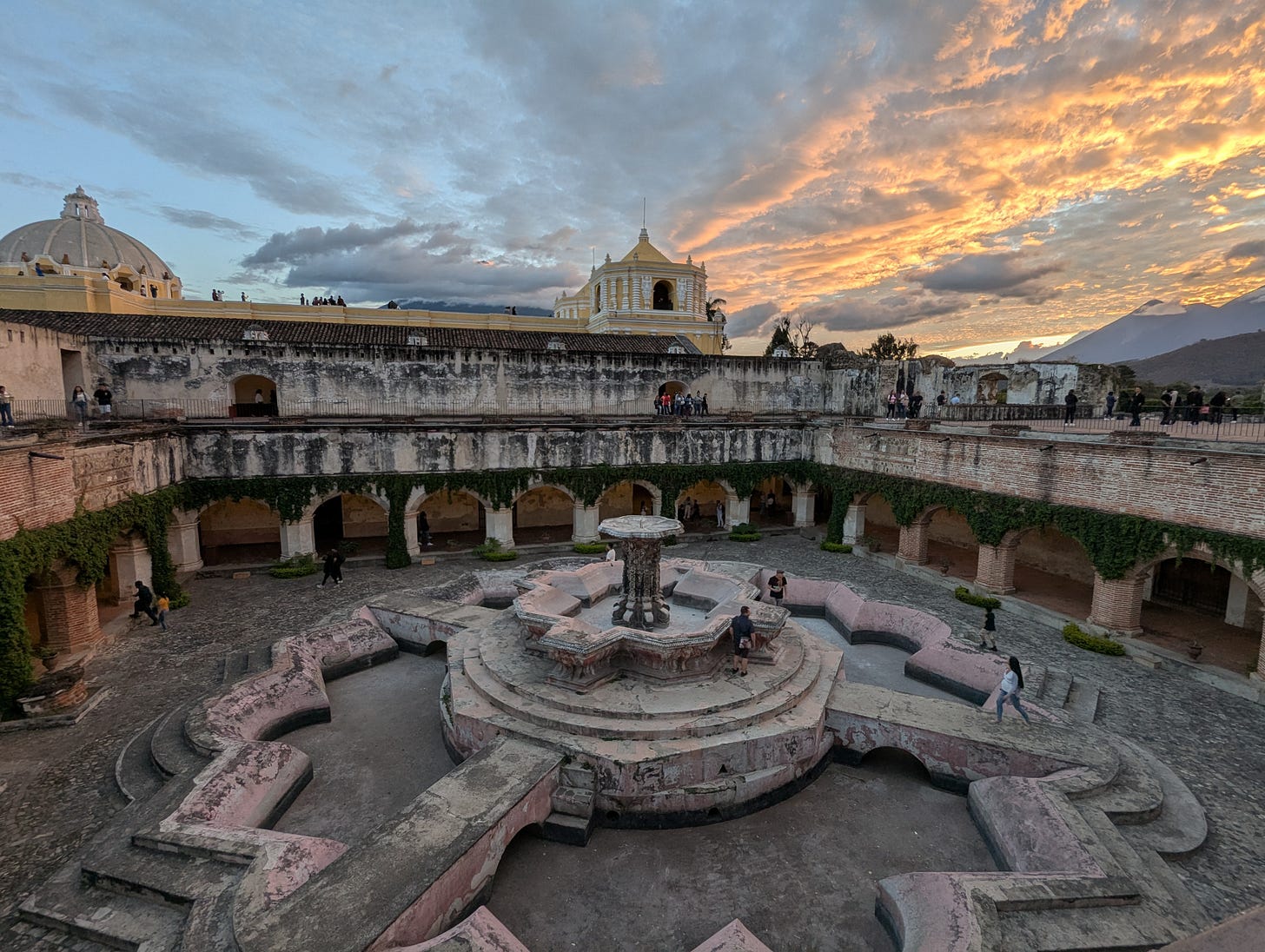
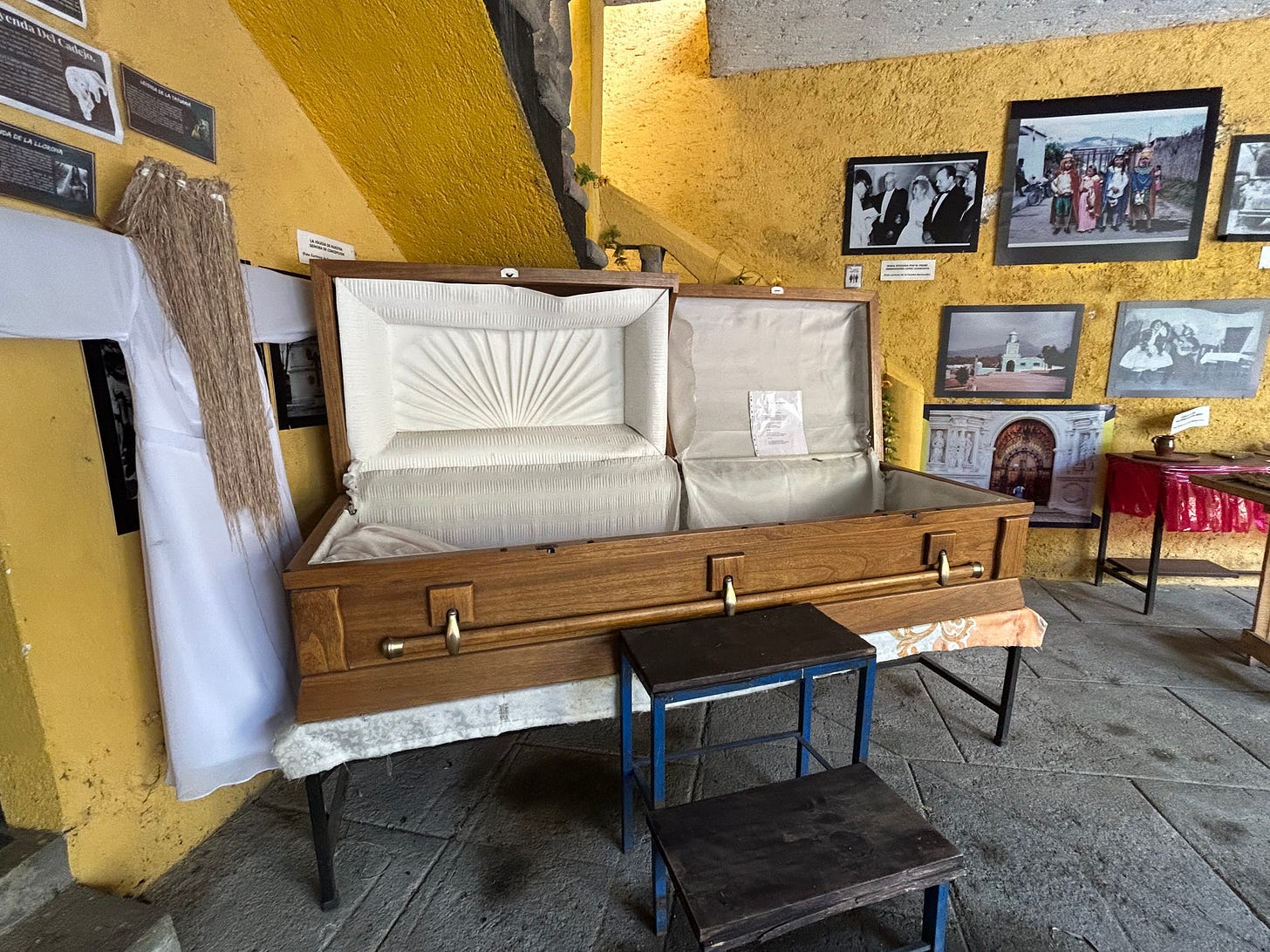
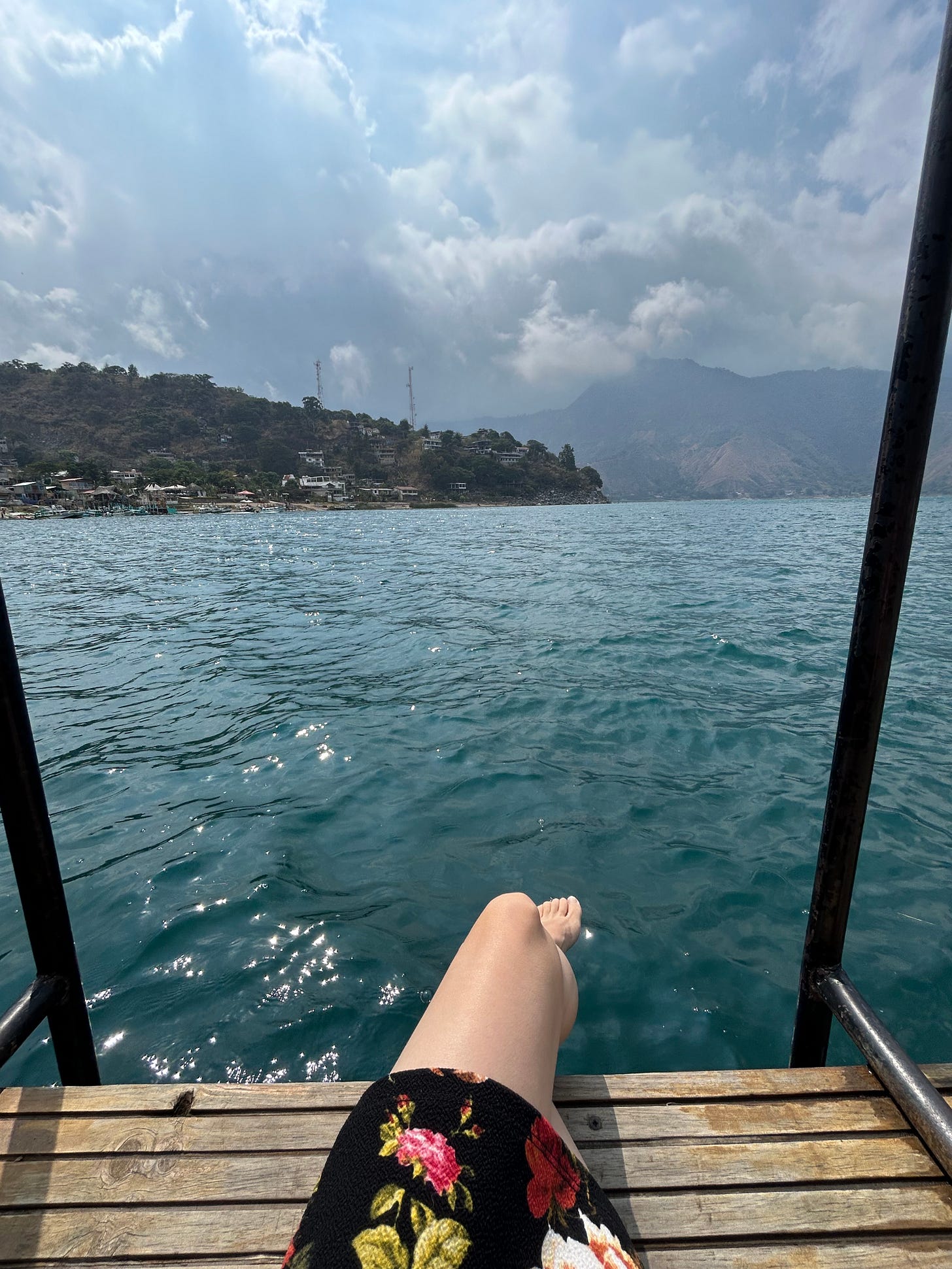
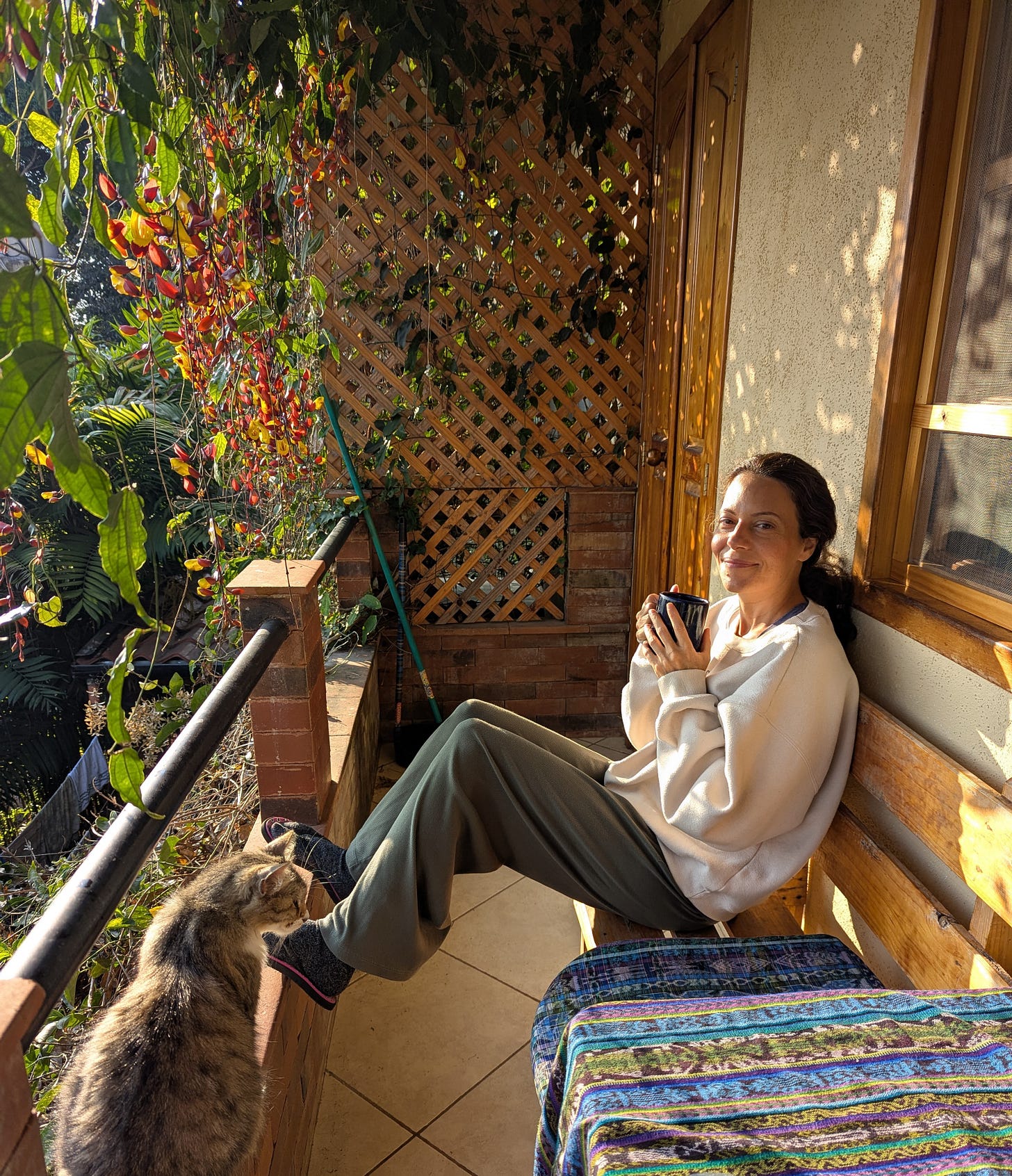
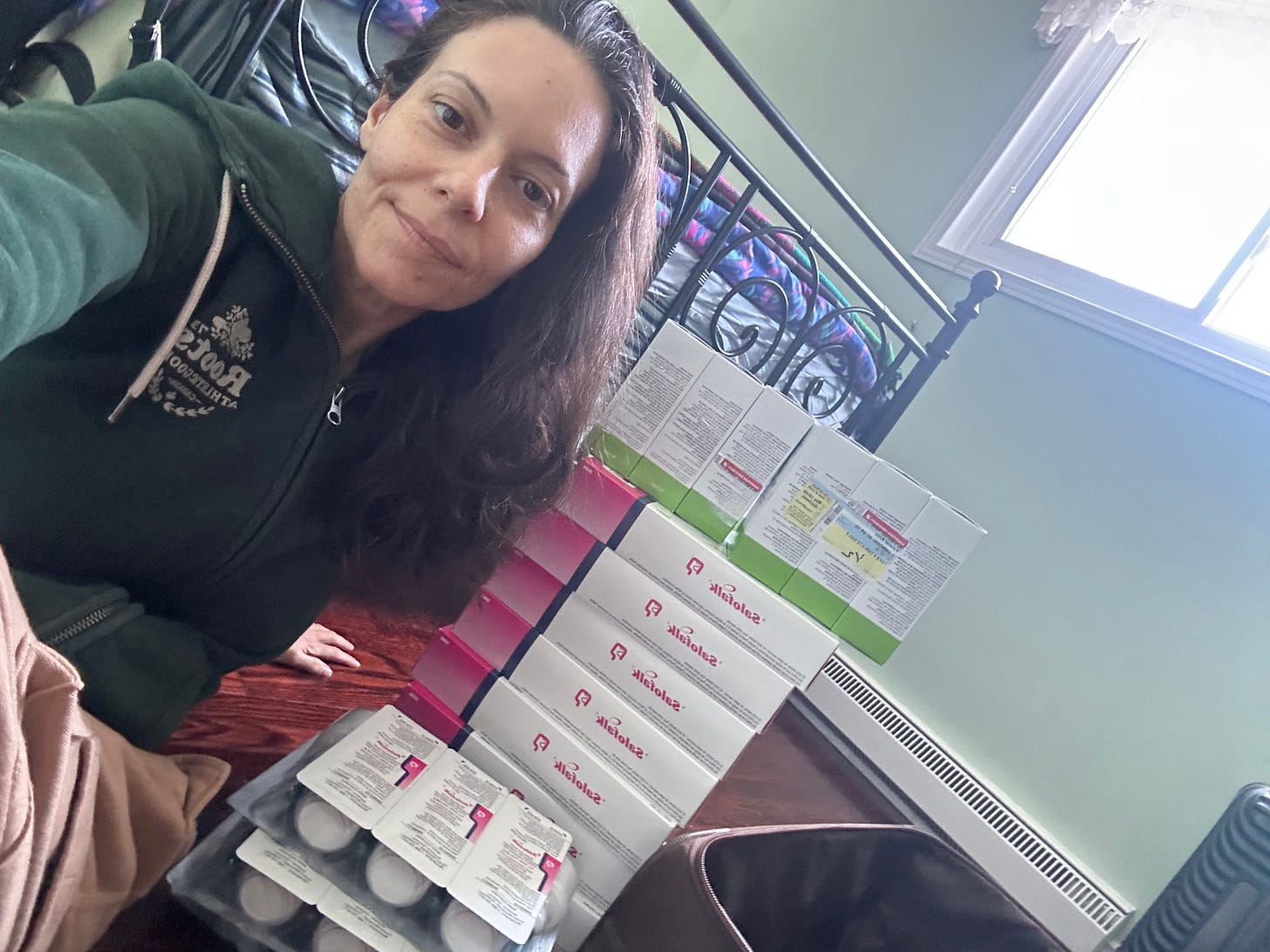
Thank you for writing this, Kyn – and it's a delight to read your words and feelings again! Much love. 💜
Thank you for putting "the meaning" behind the taboo of speaking about death so gracefully!!! All True!
be.here.nowww
Much love & admiration